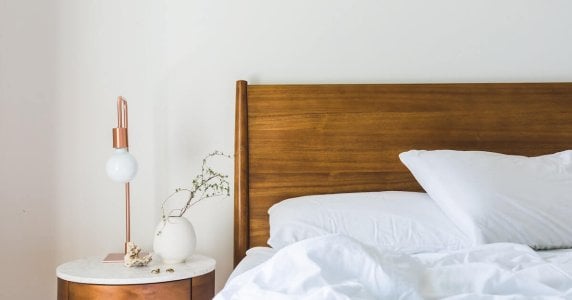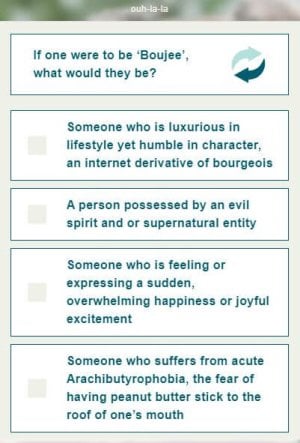Fair play or age discrimination? ‘Baby boomers’ are allegedly being unfairly excluded from Koala Mattress' year of free rent competition
- Replies 46
In a controversial twist of events for Australian competition culture, Koala Mattress's latest offer has left many in the baby boomer generation peeved, to say the least.
The mattress company has recently rolled out a website, BoomerBlocker.com, that is basically designed to filter out baby boomers from taking part in an exciting new competition.
It’s an undeniable fact that the cost of living in Australia has escalated at an alarming pace. Budgeting for rent or mortgage repayments can often feel like playing a high-stakes game with no certainty of winning.
That's why Koala Mattress company's recent competition promising struggling Australians a year's break from rent or mortgage payments sounded like a godsend.
Well, at least for those born after 1965.
The competition, named 'Boomer Blocker', is allegedly discriminating against older Australians.
While visitors to the site won’t be asked for their date of birth, the company themselves said they designed the questions so it would deliberately disadvantage the baby boomer generation.
‘In a bid to stop the golden generation from claiming any more good deals, Koala is rolling out a first-of-its-kind "Boomer Blocker", a generationally biased questionnaire in which Aussies will need to answer as part of their application,’ it said.
The website continued: ‘[This] has been purposefully designed to try and filter out boomers and ensure the offer is available to everyone from generations X, Y and Z.’
In one question, the user will be asked to explain the meaning of the term ‘Brangelina’, which is a reference to Hollywood stars Brad Pitt and Angelina Jolie’s combined names.
Another question asked what pressing Control C and Control V in succession does on a keyboard. This is a command prompt to make it easier to copy and paste words or images.
Defending their stance, Rory Costello, Koala's Chief Commercial Officer, said that baby boomers had comparatively easier access to homeownership than the younger generations, and this competition aimed to ‘level the field’.
‘We wanted to give Millennials, Gen Z’ers (referring to the generation born between the late 1990s to early 2010s), and everyone in-between the opportunity to have their rent or mortgage paid for an entire year, so they can use their cash for other luxuries that boomers enjoy daily,’ he added.
While some view this as a marketing gimmick, this move has understandably sparked conversations around age discrimination.
Just last month, Australia's outgoing age discrimination commissioner, Kay Patterson, called out ageist jokes.
‘Ageism is the least understood "ism",’ she said on a radio show.
‘We understand about sexism, we understand about racism. But most of us in our bones have some ageist views and joke about it sometimes, and jokes that would not be accepted in other areas,’ she continued.
‘“You look good for your age”. You know, we don't say to people, “You look good for being a woman” or “You look good for being an Indian or something”. We just have these strange attitudes to older people.’
Touching upon the generational financial disparity, it's crucial to reflect upon the fact that baby boomers, despite battling 18 per cent interest rates during the late 1980s, didn't face the debilitating debt-to-income ratios as the younger borrowers of today.
In 1989, Sydney’s median house price was $170,850, five times the average full-time salary of $26,874 after a 20 per cent mortgage deposit.
Compared to now, the median house price of $1.324 million is 11 times the average salary of $94,000 with the same 20 per cent mortgage deposit.
This is well above the Australian Prudential Regulation Authority's 'six' threshold for mortgage stress.
Reports show that single average-income earners now in their thirties or forties can't buy a typical Sydney house on their own. Melbourne, with a median house price of $918,971, is also out of reach, as is Brisbane, with a mid-point price of $806,781—unless a single borrower moved to a far, outer suburb.

Koala’s Boomer Blocker website is operating from July 31 to August 27.
But whether the marketing stunt is a sign of ageism or merely recognising a ‘generational divide in income inequality’ in Australia—that’s for you to decide. Let us know in the comments what you think!
The mattress company has recently rolled out a website, BoomerBlocker.com, that is basically designed to filter out baby boomers from taking part in an exciting new competition.
It’s an undeniable fact that the cost of living in Australia has escalated at an alarming pace. Budgeting for rent or mortgage repayments can often feel like playing a high-stakes game with no certainty of winning.
That's why Koala Mattress company's recent competition promising struggling Australians a year's break from rent or mortgage payments sounded like a godsend.
Well, at least for those born after 1965.
The competition, named 'Boomer Blocker', is allegedly discriminating against older Australians.
While visitors to the site won’t be asked for their date of birth, the company themselves said they designed the questions so it would deliberately disadvantage the baby boomer generation.
‘In a bid to stop the golden generation from claiming any more good deals, Koala is rolling out a first-of-its-kind "Boomer Blocker", a generationally biased questionnaire in which Aussies will need to answer as part of their application,’ it said.
The website continued: ‘[This] has been purposefully designed to try and filter out boomers and ensure the offer is available to everyone from generations X, Y and Z.’
In one question, the user will be asked to explain the meaning of the term ‘Brangelina’, which is a reference to Hollywood stars Brad Pitt and Angelina Jolie’s combined names.
Another question asked what pressing Control C and Control V in succession does on a keyboard. This is a command prompt to make it easier to copy and paste words or images.
Defending their stance, Rory Costello, Koala's Chief Commercial Officer, said that baby boomers had comparatively easier access to homeownership than the younger generations, and this competition aimed to ‘level the field’.
‘We wanted to give Millennials, Gen Z’ers (referring to the generation born between the late 1990s to early 2010s), and everyone in-between the opportunity to have their rent or mortgage paid for an entire year, so they can use their cash for other luxuries that boomers enjoy daily,’ he added.
While some view this as a marketing gimmick, this move has understandably sparked conversations around age discrimination.
Just last month, Australia's outgoing age discrimination commissioner, Kay Patterson, called out ageist jokes.
‘Ageism is the least understood "ism",’ she said on a radio show.
‘We understand about sexism, we understand about racism. But most of us in our bones have some ageist views and joke about it sometimes, and jokes that would not be accepted in other areas,’ she continued.
‘“You look good for your age”. You know, we don't say to people, “You look good for being a woman” or “You look good for being an Indian or something”. We just have these strange attitudes to older people.’
Touching upon the generational financial disparity, it's crucial to reflect upon the fact that baby boomers, despite battling 18 per cent interest rates during the late 1980s, didn't face the debilitating debt-to-income ratios as the younger borrowers of today.
In 1989, Sydney’s median house price was $170,850, five times the average full-time salary of $26,874 after a 20 per cent mortgage deposit.
Compared to now, the median house price of $1.324 million is 11 times the average salary of $94,000 with the same 20 per cent mortgage deposit.
This is well above the Australian Prudential Regulation Authority's 'six' threshold for mortgage stress.
Reports show that single average-income earners now in their thirties or forties can't buy a typical Sydney house on their own. Melbourne, with a median house price of $918,971, is also out of reach, as is Brisbane, with a mid-point price of $806,781—unless a single borrower moved to a far, outer suburb.
Key Takeaways
- Koala mattress company has launched a competition to cover the rent or mortgage costs of Australians for a year but has intentionally designed it to disadvantage baby boomers.
- Former age discrimination commissioner Kay Patterson has criticised the move, reminding the public of the ongoing issue of ageism.
- Rory Costello, Koala's chief commercial officer, defended the competition, stating that it is intended to give younger generations a financial break similar to what baby boomers were able to enjoy.
- The competition rules and focal points have sparked a debate on the different economic circumstances faced by various generations in Australia.
But whether the marketing stunt is a sign of ageism or merely recognising a ‘generational divide in income inequality’ in Australia—that’s for you to decide. Let us know in the comments what you think!










